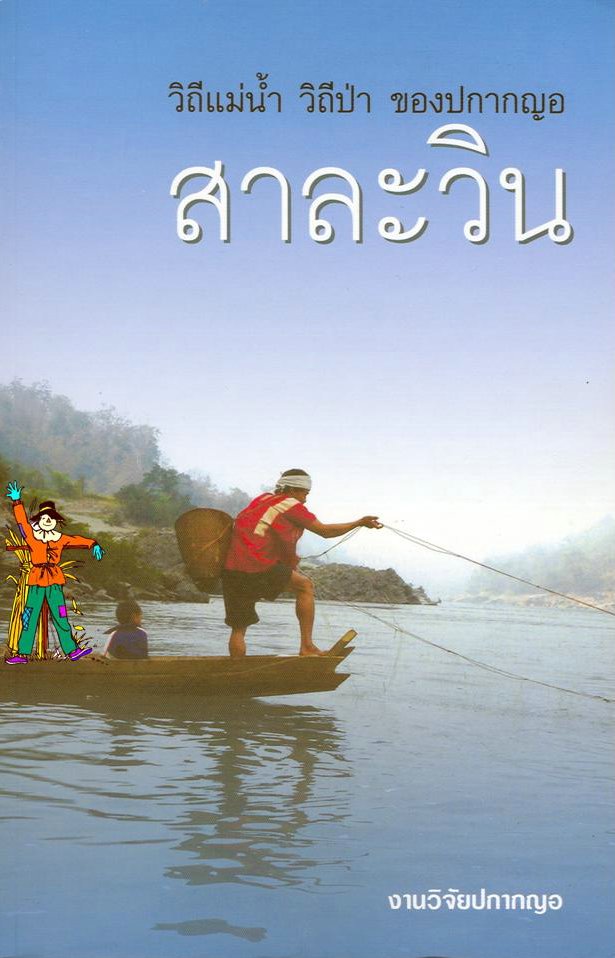Further to my post of yesterday about the “Karen consensus” strawman. Another publication has arrived in my mail box:
This is another example from the “Karen consensus” genre. Salawin (published by the Southeast Asia Rivers Network) is a lushly illustrated account of the Karen living along the Salawin River on the Thai-Burma border. The book is the product of “direct involvements and knowledge of grassroots villagers for explanation on various relevant issues with support from environmental NGOs as research assistants.” What is particularly interesting about this account is its strong emphasis on the Salawin river itself and Karen involvement in diverse forms of fishing activity. This is a valuable contribution to the ethnographic record.
But the anti-modern and anti-commercial sentiment of the environmental NGOs is never far away
The economic system is an ethical economic system. When someone catches a lot of fish they share them with their neigbours, relatives and friends according to the teaching – “catch just enough to eat and share any that is spare”. Even when only a few fish are caught, others are invited to taste and share the food together. Whoever has a curry will bring it to share.
The study found that the villagers don’t like to sell things they get from nature. They mainly exchange them or share them. If you get some fish you can exchange them for vegetables from the fields – make a fish curry with vegetables and share it. This (reciprocal?) exchange is a culture that is maintained. But sometimes when there is fish or other food left over, or someone needs money, they are taken and sold. The fish are taken in a passenger boat to Mae Saam Laep villager where they are sold for 50 to 80 baht per kilogram.
I may be a cynic, but I suspect that at 50 to 80 baht per kilogram (and there are some seriously big fish pictured in this book) there is more than just a little bit of commerce going on! Contrasting commerce with ethical goodness has a long tradition in environmentalist thinking. I wonder what Karen economy may look like if research accounts were liberated from this constraining framework.
 Facebook
Facebook  Twitter
Twitter  Soundcloud
Soundcloud  Youtube
Youtube  Rss
Rss 